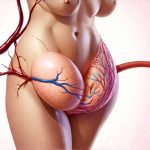Bloating – that uncomfortable feeling of fullness, tightness, and sometimes even pain in your abdomen – is something many people experience. It’s rarely a serious medical condition, but it can significantly impact daily life, making you feel sluggish and self-conscious. Often, bloating isn’t about the amount of food you eat, but what you eat. Identifying dietary triggers and making mindful adjustments can dramatically reduce discomfort and improve your overall well-being. It’s about understanding how your body processes foods and finding a balance that works for you.
Many factors contribute to bloating beyond diet, including stress, hormonal fluctuations, and even swallowing excess air. However, food plays a substantial role, and making informed choices is often the first – and most accessible – step towards relief. This article will explore practical dietary tips to help you minimize bloating and feel your best. We’ll focus on actionable strategies that can be easily incorporated into your everyday routine.
Understanding Bloating & Dietary Triggers
Bloating happens when excess gas builds up in the digestive system. Certain foods are more likely to produce gas during digestion, either because they contain compounds hard for the body to break down or because of the way they ferment in the gut. Common culprits include beans and lentils (due to their high fiber content), cruciferous vegetables like broccoli and cabbage (containing raffinose), carbonated beverages, and artificial sweeteners. However, it’s not always about avoiding foods entirely; often, it’s about understanding how your body reacts to them.
Individual sensitivities vary greatly. What causes bloating in one person might not affect another. Food intolerances, such as lactose or gluten intolerance, can also lead to significant bloating. These aren’t the same as allergies—intolerances are usually less severe but still cause digestive discomfort. Paying attention to how you feel after eating different foods is key to identifying your personal triggers. Keeping a food diary can be incredibly helpful in this process.
It’s important to remember that fiber, while sometimes contributing to gas production initially, is crucial for overall gut health and regular bowel movements. Drastically reducing fiber isn’t the answer; instead, focus on gradually increasing intake and ensuring adequate hydration. A healthy gut microbiome thrives on fiber, leading to better digestion long-term.
Dietary Strategies for Bloat Reduction
A proactive approach to diet can significantly minimize bloating. Focusing on easily digestible foods, portion control, and mindful eating habits are all important steps. Prioritize whole, unprocessed foods whenever possible, as these tend to be gentler on the digestive system. Lean proteins, cooked vegetables (rather than raw), and complex carbohydrates in moderation are good starting points.
Hydration is absolutely essential. Water helps move food through the digestive tract efficiently and prevents constipation, which can contribute to bloating. Aim for at least eight glasses of water per day, and even more if you’re physically active or live in a hot climate. Consider herbal teas like peppermint or ginger, known for their soothing properties. Reducing sodium intake is also beneficial; excess salt can cause water retention, leading to that puffy, bloated feeling.
Focus on Gut-Friendly Foods
Probiotic-rich foods are your allies when battling bloating. These foods contain live bacteria that support a healthy gut microbiome, aiding digestion and reducing gas production. Yogurt (with live cultures), kefir, sauerkraut, kimchi, kombucha, and miso are all excellent sources of probiotics. Introduce these gradually into your diet to avoid any initial digestive upset.
Prebiotics also play a vital role. These are types of fiber that feed the beneficial bacteria in your gut. Foods rich in prebiotics include garlic, onions, asparagus, bananas, oats, and apples. Combining probiotic-rich foods with prebiotic sources creates a synergistic effect, promoting a thriving gut ecosystem. Remember to introduce these slowly to avoid discomfort; just like probiotics, adding too much too quickly can cause temporary bloating.
Small Changes, Big Impact: Eating Habits
Mindful eating is about paying attention to your body’s signals and slowing down the pace of your meals. Eating quickly often leads to swallowing excess air, which contributes to bloating. Chew your food thoroughly, savor each bite, and avoid distractions like television or phones during meal times. This allows for better digestion and reduces the likelihood of overeating.
Portion control is another critical aspect. Even healthy foods can cause bloating if consumed in excessive amounts. Smaller, more frequent meals are generally easier to digest than large, heavy meals. Avoid eating late at night, as your digestive system slows down during sleep. Lastly, be mindful of food combinations; some combinations may be harder to digest for certain individuals.
Beyond Food: Lifestyle Factors
While this article focuses on diet, it’s crucial to remember that lifestyle factors also play a significant role in bloating. Regular physical activity helps stimulate digestion and reduces stress. Stress management techniques like yoga, meditation, or deep breathing exercises can also alleviate digestive discomfort. Identifying and managing your personal stressors is essential for overall gut health.
Ultimately, reducing bloating is often about finding what works best for you. There isn’t a one-size-fits-all solution. Experiment with different dietary strategies, listen to your body’s signals, and be patient with the process.
By incorporating these simple yet effective tips into your daily routine, you can significantly reduce bloating and enjoy a more comfortable and confident life. Remember that consistency is key, and making small, sustainable changes over time will yield the greatest benefits.


















